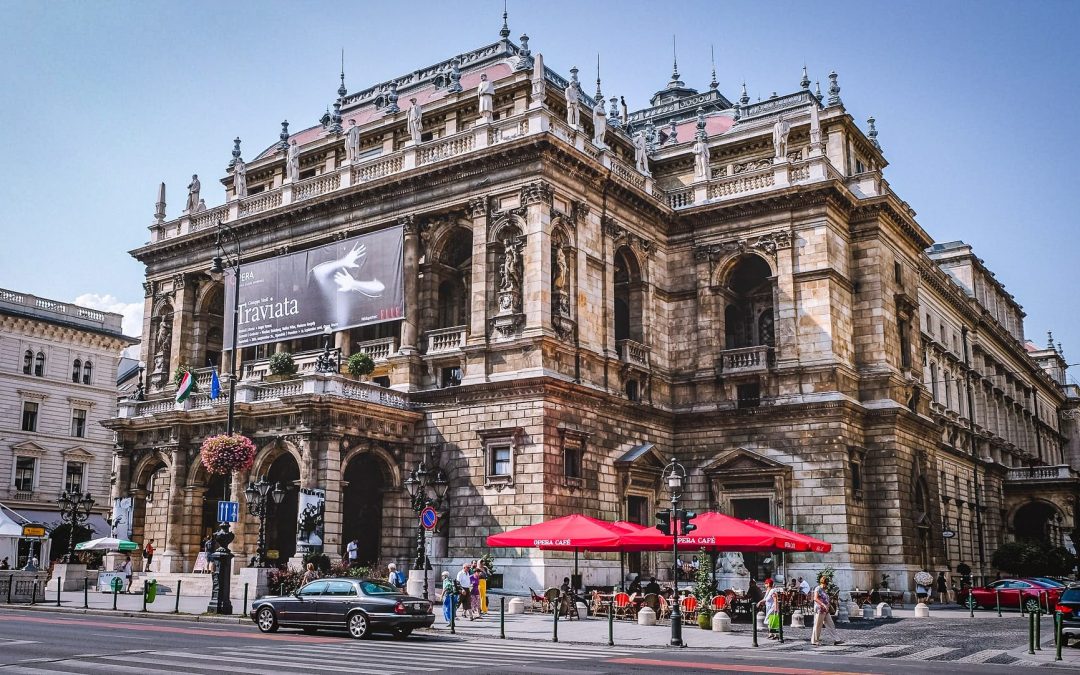The Budapest Opera House, located in the heart of the Hungarian capital, is one of the most prominent and prestigious theatres in Europe. Founded in the late 19th century, the theatre has become a symbol of Hungarian art, culture and tradition. Throughout its history, the Opera House has not only presented the greatness of classical operetta, but has also become a platform for experimentation and innovation in musical theatre.
Historical Overview
Since its opening in 1886, the Budapest Opera House has always played an important role in the cultural life of the city. In fact, the influence that the Budapest Opera House has on the city’s culture is comparable to the influence of the top online casino in the modern world of entertainment. Initially a home for operetta and opera, the theatre has since become a true laboratory of musical and theatrical art. Its architecture, sophisticated and elegant, reflects the wealth and luxury of the era in which it was created, and its interiors remain a model of theatre décor.
Artistic Mission
The mission of the Budapest Opera House goes far beyond the usual performance of classical works. It strives to preserve the traditions of Hungarian operetta while developing new trends and presenting contemporary works by local and foreign composers. The theatre also actively contributes to the education of the younger generation by organising educational programmes and masterclasses.
Repertoire and Performers
The repertoire of the Budapest Operetta Theatre is impressive in its diversity: from classical works by Imre Kalman and Ferenc Lehár to contemporary musicals and operas. The theatre prides itself on its top-notch ensemble of actors, singers and dancers, and attracts world-class stars to perform in its productions. Their skills and passion for the arts make every performance an unforgettable experience.
Cultural Significance
The Budapest Operetta Theatre is not only a venue for performing art, but also an active participant in the cultural life of Hungary, contributing to the preservation and development of national identity. Its contribution to the development of operetta as a genre cannot be overestimated, and its efforts to promote Hungarian music internationally have been recognised with numerous awards and accolades.
Educational Role
In addition to its core activities, the theatre is actively involved in educational work, organising programmes for schoolchildren and students. These initiatives allow the younger generation not only to experience the richness of operetta, but also to learn more about theatre in general, thus fostering new theatre lovers.
International Recognition
Participation in international festivals and tours helps the Budapest Opera House to strengthen its position on the world cultural scene. The theatre is known far beyond Hungary, and its performances are always met with great enthusiasm abroad.
Technological Innovations
In response to current trends, the Budapest Opera House also integrates the latest technology into its operations. This not only improves the visitor experience, but also expands the theatre’s audience. In particular, the use of digital platforms and a mobil casino allows theatre fans from all over the world to experience the theatre’s magic from the comfort of their homes. This modern interpretation of the theatre experience emphasises its ability to adapt and evolve, while retaining its unique essence.
Collaboration with Artists
The theatre is not only a place of performance, but also a platform for creative exchange between artists from different countries. Collaborations with foreign composers, directors and actors bring fresh ideas and approaches to the classic operetta genre, enriching the Hungarian cultural scene.
A call for Support
The Budapest Operetta Theatre continues to be an important cultural institution that needs support not only from the government, but also from private sponsors and art lovers. This support ensures the continuation of its mission to preserve and develop operetta as an artistic genre.
A visit to the Budapest Operetta Theatre is not just a cultural holiday, but also a deep immersion into the world of music, dance and theatre. The theatre not only impresses with its architecture and history, but also remains a living organism that is constantly evolving, adapting to the changing conditions of the modern world and offering new forms of artistic expression.

